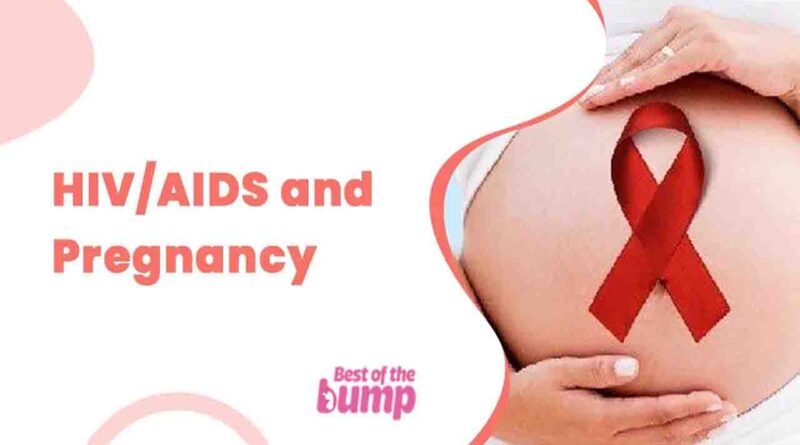HIV or AIDS During Pregnancy
HIV, or the human immunodeficiency virus, is an infection that has the potential to be transmitted from a mother to her baby during gestation, childbirth, or through breastfeeding. Without proper intervention, HIV can lead to a life-threatening condition known as acquired immunodeficiency syndrome (AIDS).
For individuals who have HIV/AIDS and are considering conception or are already pregnant, it is crucial to be informed about measures to ensure the safety of the baby. This includes understanding the risk of transmission and exploring pregnancy-safe treatment options. The goal is to protect both the mother’s health and the well-being of the baby while managing the challenges associated with HIV during pregnancy.
How common is HIV in pregnancy?
In the year 2020, it was estimated that around 258,000 women in the United States were living with HIV, and approximately 7,000 women received an HIV diagnosis in the preceding year.
Encouragingly, there has been substantial progress, with perinatal HIV diagnoses (indicating mother-to-child transmission of HIV) declining by more than 95 percent since the early 1990s.
For pregnant individuals who are aware of their HIV-positive status, it is advisable to seek the care of a healthcare provider with expertise in treating patients with HIV. Alternatively, you may choose to be co-managed by both an obstetrician and an infectious disease doctor during the course of your pregnancy. This collaborative approach aims to ensure comprehensive care and effective management of HIV, safeguarding the health of both the mother and the unborn child.
Who is most at risk of HIV?
The primary modes of HIV transmission for women typically involve engaging in unprotected sexual intercourse with an infected partner or sharing drug needles with someone who is HIV-positive.
To reduce the risk of infection, using condoms consistently and correctly during sexual intercourse is considered one of the most effective preventive measures. If you are planning to conceive, it is recommended for both you and your partner to undergo HIV testing. While you may be offered HIV testing as part of routine blood work during early pregnancy, the same is not automatically done for your partner. Therefore, it is important to actively discuss and consider testing together to ensure comprehensive awareness and informed decision-making.
What are the symptoms of HIV?
The symptoms of HIV can vary depending on the stage of the infection. These may include:
- Unexplained weight loss
- Loss of appetite
- Generalized malaise (feeling unwell or discomfort)
- Prolonged swelling of the lymph nodes
- Pain
- Numbness or tingling sensations all over the body
- Skin sores
- Abnormal Pap tests
It’s important for individuals experiencing any of these symptoms, especially if they suspect exposure to HIV, to seek medical attention promptly for proper evaluation and testing. Early detection and management play a crucial role in maintaining overall health and well-being.
What to know about HIV/AIDs if you’re pregnant
While AIDS remains a serious health concern, advancements in drug regimens have allowed for effective management of the virus. Fortunately, during pregnancy, appropriate treatment can significantly reduce the risk of transmitting the infection from the mother to her baby. Opting for an elective C-section during delivery further lowers this risk.
Throughout labor, your healthcare provider will monitor your viral load. Depending on the level of viral load, a vaginal delivery may be an option, but higher viral loads may necessitate a C-section.
If you are already HIV positive or have AIDS, it is crucial to discuss medication options with your doctor. Some medications may pose risks to the developing baby, while others appear to have fewer adverse effects. Zidovudine (AZT), for example, has shown a significant reduction in the transmission of the virus to the baby. This medication should be taken throughout pregnancy, and during delivery, it is administered via IV.
Additionally, your baby will be prescribed the drug for six weeks after delivery to enhance the chances of avoiding infection. It is advisable to refrain from breastfeeding, as HIV can be transmitted through breast milk. Open communication with your healthcare provider is essential to determine the most suitable treatment plan for you and your baby.
References
- Kaiser Family Foundation, Women and HIV in the United States Opens a new window, March 2020.
- Centers for Disease Control and Prevention, HIV and Perinatal Transmission Opens a new window, September 2022.
- Centers for Disease Control and Prevention, HIV and Women Opens a new window, August 2022.
- American College of Obstetricians and Gynecologists, HIV and Pregnancy Opens a new window, January 2022.
- HIV.Info.NIH.gov, NIH Office of AIDS Research, HIV Medicines During Pregnancy and Childbirth Opens a new window, August 2021.
- What to Expect When You’re Expecting, 5th edition, Heidi Murkoff.
See this also –
- Signs of Pregnancy
- Pregnancy Fashion: Embracing Style and Comfort
- 9 week fetus – Symptoms, Fetus Size, and Baby Development
- Deep Vein Thrombosis (DVT) During Pregnancy and Postpartum
- Cytomegalovirus (CMV) During Pregnancy




